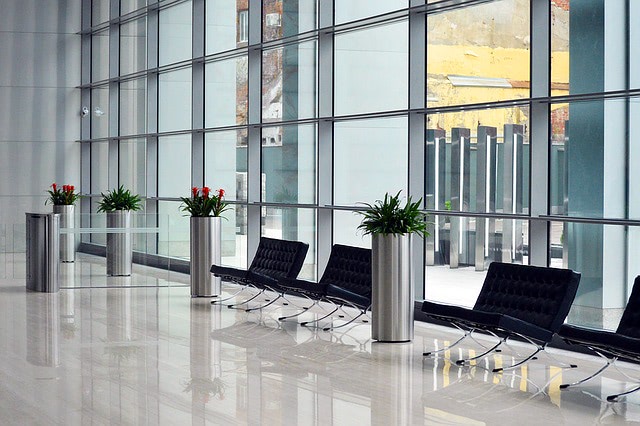The dangers surrounding UK university accommodation

Should access control systems be installed around university accommodation?
The dangers surrounding the UK’s university accommodation has been spotlighted in various news stories, with the articles sure to concern prospecting students and parents alike.
One such story was when a video went viral during 2018 which witnessed a group of Nottingham Trent University students chanting comments of a racist nature while stood in front of the door of another student staying in the university’s halls.
Captured by student Rufaro Chisango, the video was put onto the popular social media platform Twitter and quickly went viral as users across the globe expressed their shock at the clip’s content.
Mr Chisango was fortunately kept safe from any physical harm as a result of the advancements in technology and the access control systems which were in place around the university halls.
With this news story in mind, 2020 Vision is on hand to advise why such technology should be seen as vital for protecting students within UK universities and improving their overall wellbeing throughout their university life.
The need to bring access control systems into university accommodation
Access control systems have two main functions which can assist in protecting individuals and organisations alike. The first has a more basic yet effective approach and has the ability to enable or prevent someone from entering or exiting a location — this could range from the whole site, a wing of a building, or a singular room that needs protecting from unauthorised personnel.
The secondary function of access control systems is that it enables an internal system to record movements which are made both into and out of a location. This function in turn allows premises owners to conduct a data trail for audits, traceability, and user compliance. It can also detect any areas where improvements could be necessary.
Try to gain entry to a location that’s controlled by access control systems and valid credentials will be required. In university accommodation, for instance, key cards and identification tags are commonly used. The purpose of having such security measures in place is to help protect students from unauthorised access, which could potentially threaten their wellbeing or put their possessions at risk.
There’s been an increase in price seen in both university and accommodation fees. Therefore, it stands to reason that students have the right to have higher expectations when it comes to their own welfare in their chosen accommodation, especially when they’re living in a block with total strangers and visitor count isn’t always monitored. According to a survey carried out by Save The Student, the average cost of renting is £131 per week, which leaves students with £8 to live on after deducting the payment from their maintenance loan.
This fee is also leaving a lot of students on the brink. As a result, they shouldn’t be left feeling unsafe and vulnerable in their newly found home. Although university culture does play a large part on student life, excessive and unordinary behaviour is not acceptable. It was found that 52% of students have noisy housemates, 37% of housemates steal food (considered as theft), 8% have dangerous living conditions, and an astonishing 6% have experienced a break in or a burglary.
Accommodation being poor value for money is the feeling of one in three people, with complaints becoming far too frequent for those responsible to deal with. Now, there is a demand for larger investments into suffering areas — accommodation providers are under extreme amounts of pressure to make changes otherwise they could encounter detrimental damages that will impact them in the long run.
Understanding the benefits of access control systems
Implementing access control systems throughout university campuses and student accommodation provides so many benefits. Evidently from the story above discussing the racist chants, it has become critical to ensure the safety and protection of young people as unsolicited actions can be carried out without any prior detection.
Many more different room types are being offered to students by accommodation providers now. There are options like drinking preferences (loud/quiet flat), age (undergraduate/postgraduate), and gender, for example. However, there are still many faults. Universities should be looking at implementing more personal options that enable young people to properly filter down the type of roommates they are looking for — such as language, religion, race, and more to create a safer and more familiar environment for all.
Benefits of access control systems in general include…
Key card can be deactivated — Unlike regular keys, which can be copied or taken after students move out of their university accommodation, access control key cards can be deactivated. This removes the risk of any unauthorised entry and heightens the safety of the new tenant after the previous lease is up.
People won’t gain entry without a card — Building blocks, apartments, and private rooms will be properly secured from unauthorised personnel when introducing access control systems. As they require the swipe of a unique key card for entry permissions which are given only to students, this will make it difficult for anyone other those who are enrolled as residents to enter.
Improve how you monitor sites — Keeping track of who comes into the premises and who goes out is often something that traditional security methods fail to do correctly, and it isn’t always reliable. Using access control systems and key cards, this can all be documented and easily accessed when needed.
Restrict access where necessary — This is an essential part to any access control systems, as security workers can actually restrict the access of some cards, allowing for only specific entry times. This is particularly useful when it comes to accommodation employees such as cleaners, as their key cards can be matched with their shift patterns.
Get to grips to advanced credentials — As the world moves forward with enhanced technological developments, access control has become part of the revolution. Students in particular are avid users of smartphones and now, locked areas can be accessed through the use of such device as credentials are able stored safely; this is an extremely important new feature as smartphones are very rarely out of the hands of young people.
Across the UK’s university accommodation sites, enhanced security needs to be seen as being very important. This security can even be utilised for invacuation and dynamic lockdown processes in a bid to create a safer living environment for young students. This can also help reduce the risks that come with fast-moving incidents (firearm attacks etc).
Are you prepared to make the necessary adjustments which will guarantee safety for those using your facilities? You really can’t put a price on it.











Responses